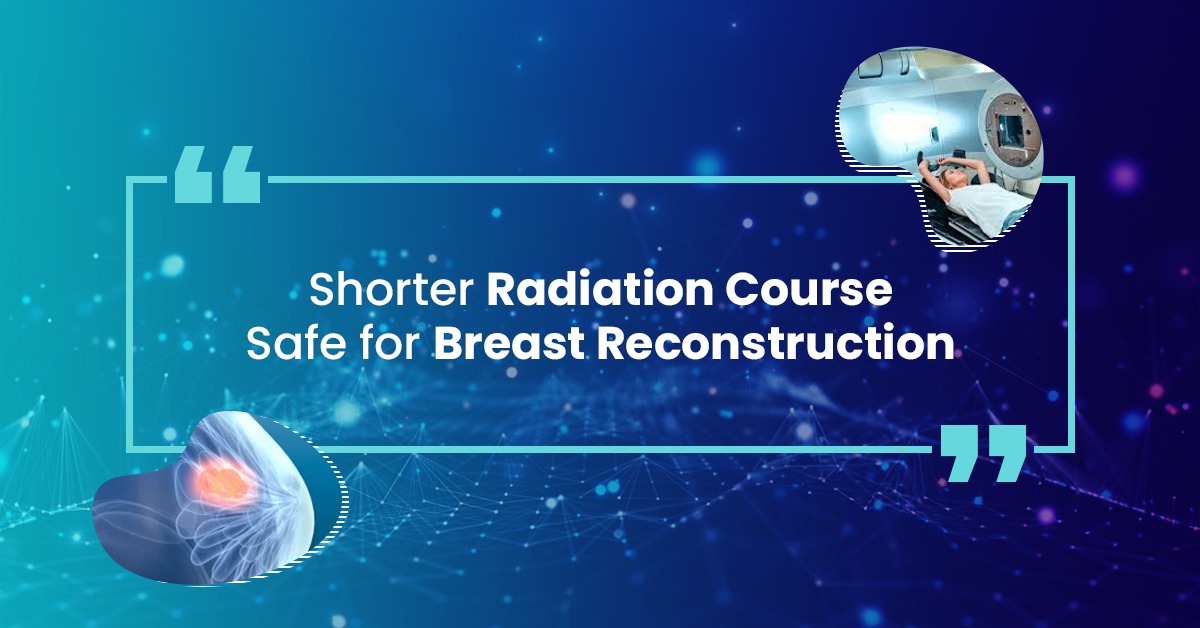A recent study presented at the annual meeting of the American Society for Radiation Oncology (ASTRO) in Washington, DC, revealed promising results for breast cancer patients. The study concluded that a shorter course of postmastectomy radiation combined with breast reconstruction is both safe and effective.
Study Overview and Key Findings
Matthew Poppe, MD, from the University of Utah in Salt Lake City, led the study. He and his team found that women who undergo breast reconstruction after mastectomy do not experience more complications when receiving a shorter radiation course. In a statement, Poppe explained, “The trial’s results demonstrate that we can safely shorten these patients’ treatment duration to three weeks, without sacrificing their reconstruction.”
Comparing Traditional and Shorter Radiation Treatments
Typically, radiation treatment for breast cancer lasts five to six weeks. However, shorter radiation sessions, known as hypofractionated radiation therapy, are both effective in treating cancer and improving the quality of life for patients. Concerns about increased radiation exposure have limited the adoption of shorter courses for some women.
The RT Charm Trial: A Closer Look
Poppe and his colleagues launched the RT Charm trial to address these concerns. This large-scale study aimed to assess whether women who received shorter treatment regimens would experience increased complications or side effects. The trial included 898 women from 209 academic and community-based cancer centers across the United States and Canada. All participants had unilateral invasive breast cancer and either smaller tumors with regional lymph node invasion (pT0-2 pN1-2) or larger tumors (pT3N0).
Study Groups and Radiation Doses
The women were randomly divided into two groups:
– **Hypofractionated Radiation Group**: 16 fractions delivered over approximately three weeks (total dose of 42.56 Gy; n = 449).
– **Conventional Radiation Group**: 25 fractions administered over five weeks (total dose of 50 Gy; n = 449).
Reconstruction Types and Complication Rates
Of the 650 women who underwent reconstruction during the study:
– 41% had **autologous reconstruction**, using their tissue (with or without implants).
– 59% underwent **implant-only reconstruction**.
After two years, 14% of women who received shorter radiation courses reported post-reconstructive surgery complications, compared to 12% of those who received standard treatment. Additionally, women who underwent autologous reconstruction had fewer complications (8.7%) compared to those with implant-only reconstruction (15.5%).
Recurrence Rates and Long-Term Outcomes
The study also revealed minimal differences in cancer recurrence rates between the two groups. Only 1.5% of women who received the shortened radiation course experienced cancer recurrence within three years, compared to 2.3% of women in the conventional treatment group.
Benefits of Shorter Radiation Courses
Poppe emphasized that a shorter course of therapy can save both time and money for patients, especially for those who must travel long distances for treatment. He also expressed hope that these findings will encourage other cancer centers to adopt shorter radiation therapy regimens for all mastectomy patients.
References:
1. American Society for Radiation Oncology (ASTRO). Summary of findings presented at the ASTRO 2023 Annual Meeting, highlighting the safety and effectiveness of shorter radiation courses for breast reconstruction post-mastectomy. Link – https://www.astro.org/Meetings-and-Education/Micro-Sites/2023/Annual-Meeting September 30, 2023.
2. Poppe, Matthew, MD. University of Utah, Salt Lake City. “RT Charm Trial: Investigating Shortened Radiation Courses for Postmastectomy Patients.” [Prepared statement] Link – https://healthcare.utah.edu/news/2023/09/shortened-radiation-trial-safe-effective-breast-cancer-patients
3. National Cancer Institute. “Hypofractionated Radiation Therapy for Breast Cancer.” [National Cancer Institute] Link – https://www.cancer.gov/about-cancer/treatment/types/radiation-therapy/hypofractionated.



